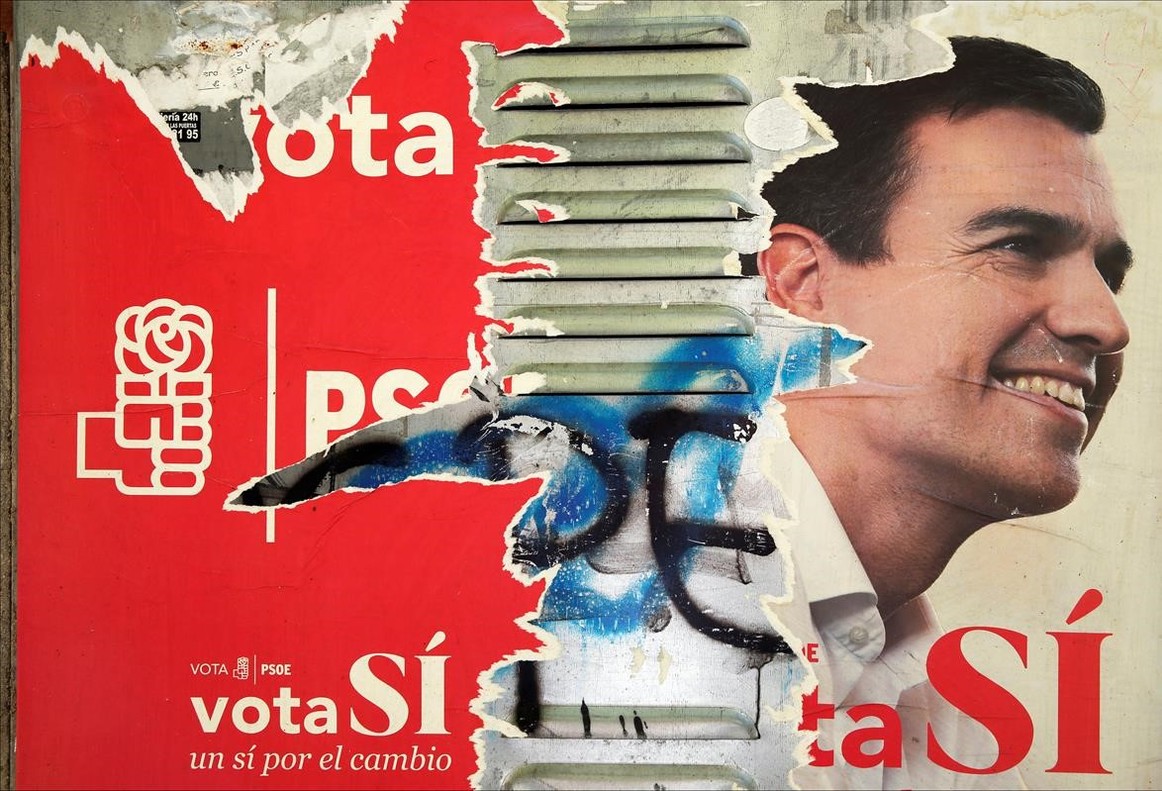by DICK NICHOLS

In the end, on October 29, it all worked out pretty well for Mariano Rajoy. After patiently implementing his motto that “all things come to he who waits”, the leader of the minority conservative People’s Party (PP) was that day confirmed as Spain’s prime minister for a second four-year term.
Two days later, Rajoy was sworn in by King Philip and normal operations were resumed in the institutions of the Spanish state after ten months of tension and turmoil springing from the inconclusive general elections of December 20 and June 26.
These had converted the two-party system into a four-party game, with newcomers Podemos (on the left) and Citizens (on the right) drawing millions of voters away from the PP and the Spanish Socialist Workers Party (PSOE), Spain’s other traditional “party of government”. No party had a majority and the second election was called because the PSOE’s attempt to form a government with Citizens failed because of the opposition of the PP, Podemos and the rest of the left, as well as of Basque and Catalan nationalist forces.
Acting prime minister since December 20, Rajoy won the support of only 170 deputies in the 350-seat parliament. However, because 68 PSOE MPs abstained in the final investiture vote–following the line decided by their party’s October 23 Federal Political Committee—the vote against Rajoy was only 111.
Only 349 MPs had voted. The missing vote was that of former PSOE federal secretary Pedro Sánchez, who had been deposed by the party’s Federal Political Committee on October 1when he proposed that the decision on whether to allow a PP government be taken by the PSOE membership in a special congress.
Rather than obey his party’s instruction to abstain, Sánchez gave up his parliamentary seat on the morning of the vote. In his resignation letter the ex-leader wrote: “I remain at the service of the membership and of its legitimate representatives in each and every institutional arena. Anyone wanting to fight to recover an autonomous PSOE distinguishable from the PP…anyone wanting to consolidate a PSOE where the membership decides, will find me by their side.”
Sánchez said he would soon drive all over Spain to listen to the opinions of the PSOE membership and work out whether he had sufficient support to stand again as federal secretary.
LINKS for more
